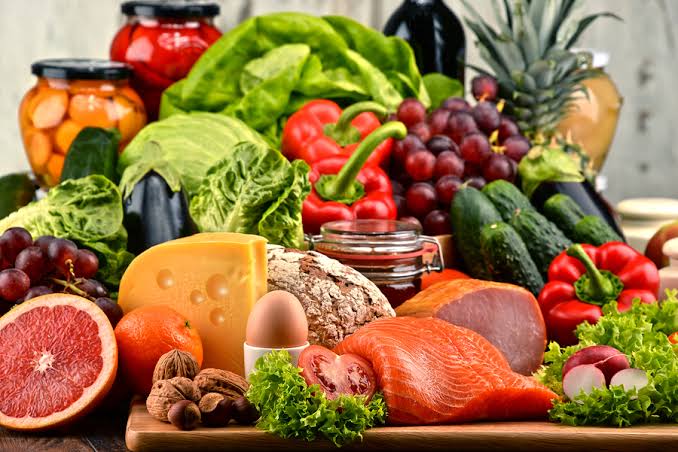A new life begins at conception. Nutrition plays major roles in the first trimester (first 12 weeks of pregnancy) which is an important phase in pregnancy.
A woman learns she is pregnant after 4 weeks, which corresponds to 2 weeks after a missed menstrual period; but in-between the 4 weeks, implantation occurs. The central nervous system, eyes, arms, and legs begin to form. Week 4 through 8 are considered the embryonic period that the eyes and ears formed, followed by genital development, kidneys, palate and teeth. Week 9 ends the embryonic period, and the foetal developmental period begins.
Hence, the occurrence of certain events in the critical period may have irreversible effects on later developmental stages because the development of each organ and tissue is most vulnerable to adverse influences such as nutrient deficiencies or toxins during this critical period.
Impact of Nutritional Status on Pregnancy Outcome
Many studies have shown that women with poor nutritional status had adverse pregnancy outcomes and infants with compromised birth weight while those with optimal nutritional status had better pregnancy outcome with reduced incidence of Low Birth Weight (LBW) infants and preterm births, anaemia and delivery complications.
Nutrition in the First Trimester
During pregnancy, mother’s dietary habits affect the foetus growth and development.

7 healthful Keys to Optimal Nutrition in the First Trimester
- Eat adequate diet: this can come from nutritious foods, such as lean meats, low-fat dairy products, fruits, vegetables, whole grains and healthy fats and oils, etc.

- Include the Essential nutrients to your daily meals:
- Folic acid is needed for foetal brain, spine and helps blood supply during pregnancy. Enough folic acid is important in preventing Neural Tube Defects (NTD), a major birth defect of baby’s brain or spine. It can be found in Green leafy vegetables, avocado, legumes, beans, orange, fortified bread and cereal, etc.
- Calcium: helps build strong bones and teeth; can be found in milk, cheese, yogurt, tofu, nuts, eggs and sardines.
- Vitamin D: aids calcium absorption; can be found in salmon, mackerel, tuna, mushrooms, eggs, vitamin D fortified milk and cereal and through exposure to sunlight.
- Iron: helps red blood cell deliver oxygen to the foetus; can be found in lean meat, seafood, liver, beef, cereal, bread, pasta, leafy green vegetables, beans, nuts, dried fruits
- Vitamin C: needed for iron absorption and promotes teeth and bone formation. Can be found in Fruits, vegetables, especially red and yellow peppers, cabbage, strawberries, tomatoes, citrus fruits, etc.
- Vitamin B6 and 12: helps form red blood cell and promote nervous functions; can be found in beef, liver, poultry, fish, milk, banana and whole grain cereals.
- Omega 3 fatty acids and choline: needed for foetal nervous system development; can be found in oily fish like salmon, tuna, nuts, seeds, flaxseed, vegetable oil, eggs, etc.
- Elimination of alcohol and other harmful substances: limit caffeine as much as possible as it interferes with sleep, contribute to nausea.
- Exercise: Staying active can improve fitness and endurance which a woman needs to carry the extra weight through pregnancy, prevent or manage gestational diabetes, reduce stress and facilitate labour. Women who participate in regular but “low-impact” exercise during pregnancy report fewer discomforts throughout their pregnancies.
- Pre-natal vitamins: Even if you eat a balanced diet, you can still miss out on essential nutrients. A prenatal vitamin is recommended to make sure you get all the nutrients needed for a healthy pregnancy.
- Fluid: ensure you consume at least 3 litres of water daily and rest as much as you can
- Weight gain: it is a myth that you need to “eat for two” during pregnancy, you do need extra calories, but you do not need extra calories in the first trimester until second trimester. However, it is normal to gain 36-2.27 kg in the first trimester due to increased blood and fluid volume.
Conclusively, making healthy food choices and having a balanced diet during pregnancy will help prepare mother and foetus for lifelong health. Remember, pregnancy is not the right time to diet or lose weight as it could prevent your baby from getting essential nutrients.
Image credits
Depositphotos.com
Shutterstock.com
Adequate Food Guarantees Great Health; You Are What You Eat!
OGUNBAYO-OLABODE AZEEZAT (R.D.N.)
FOUNDER, HEALTHDEAL NUTRITION
Facebook page: https://www.facebook.com/precisedietitian/
E-mail: healthdealwithaz@gmail.com


